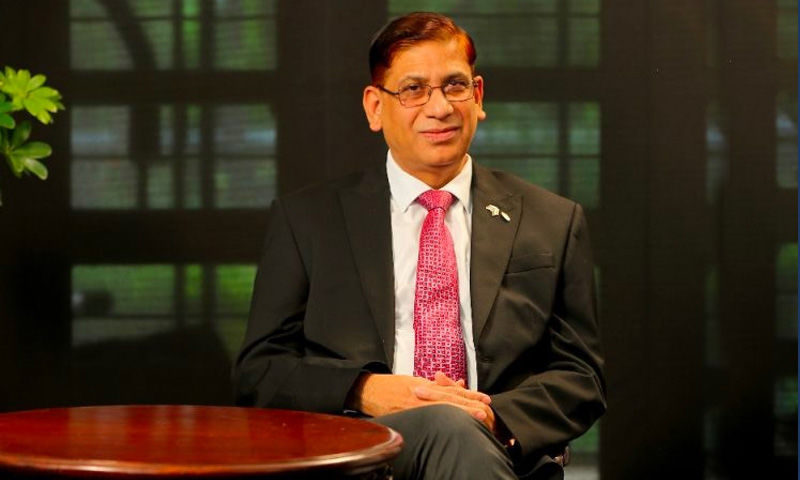
Kerala court shouldn’t have rejected nun’s testimony in toto: Legal expert
Faizan Mustafa, Vice-Chancellor of NALSAR, explains the legalities involved in a rape case, and how far these were followed in the Franco case

The recent acquittal by a Kottayam court of Bishop Franco Mulakkal, a rape accused in a high-profile case, shocked a number of people including women’s groups working for rape survivors and other sections that were awaiting a different outcome. To better understand the judgment and provide a perspective to the acquittal, The Federal spoke to Prof Faizan Mustafa, Vice-Chancellor of NALSAR University of Law, Hyderabad, via email.
Mustafa is the author of eight books and has published scores of articles on law. He has also been quoted by the Supreme Court a number of times. The Federal sought his opinion on the Franco Mulakkal acquittal, and another assault case being heard in a Kerala court, in which actor Dileep is among the accused.
Excerpts from the interview:
The legal principle falsus in uno, falsus in omnibus (false in one thing, false in everything) was used to reject the victim’s testimony in the recent verdict in the sexual harassment case against Jalandhar Bishop Franco Mulakkal. What’s your reaction?
Yes, this principle is quite well-known but whether it has been rightly interpreted and relied on in this case is the moot question. The judge did discuss this case and refer to judicial precedents but the rejection of the entire testimony of the victim was not correct.
Also read: Kerala nun case: Can courts demand clinical precision from rape victims?
The court maintained that ‘when it is not feasible to separate truth from falsehood, when grain and chaff are inextricably mixed up, the only available course is to discard the evidence in toto’. However, according to some senior lawyers, the legal principle is that even if only a portion of the evidence is admissible, that should be accepted. Your comments?
Yes, these lawyers are correct. True, on the higher level of generality the principle has been correctly stated, but the learned judge should have made a sincere effort to separate truth from falsehood. In offences like rape, the testimony of the victim who is considered the most important witness cannot be discarded like this — due to some discrepancy or even false statements. The totality of the circumstances may not justify the rejection of testimony in toto.
There is a view that the fiduciary relationship between Bishop Franco and the survivor nun should have been taken into account to pronounce the verdict in favour of the survivor. Is this correct?
No. Fiduciary relationships in all cases cannot be the basis of conviction. But, since rape is basically an offence of power, a person who has power and control over the victim may take undue advantage of his power and therefore the courts must not overlook this vital fact of power relationship between the accused and the victim.
Also read: What it means to be a nun in Kerala: Stories of ordeal and steely nerves
In sexual harassment cases, the accused obtain media gag orders from the Courts. Should the judiciary oblige the accused?
Media trial is not a good thing. But the court should not pass gag orders on the media. The rights of the accused are equally important. The reporting of criminal cases, particularly sexual harassment and rape cases, do involve sensitivity and at times electronic media journalists in their quest to get TRP do cross the limits of decency and journalistic ethics.
In the rape case against Bishop Franco, the hearing was carried out in-camera. However, when the full text of the judgment was posted in the public domain the purpose of the in-camera hearing was lost as sensitive case details came out in the open. Should the judgment not have been publicised in full?
A judgment is a public document and it has to be published. People are free to criticise a judgment but should avoid attributing motives to the judge. In-camera trial is to protect the victim and witnesses. In a rape trial, defence lawyers at times ask highly objectionable questions and victims feels embarrassed to answer them in front of the public. At times even the witnesses are harassed. The judge, after stating the facts, discusses testimonies and then pronounces judgment on the charges framed by him.
What are the laws and procedures in place for the cross-examination of a rape survivor during the course of the trial? Doesn’t the rape survivor need protection from harassment?
Yes, of course. In-camera hearing serves this purpose. In appeal no evidence is recorded. Recording evidence is done only in the trial court. In the appellate court, victims or witnesses are not examined.
To protect the rape survivor, the law provides for in-camera trial. Earlier, during cross examinations, all kinds of questions used to be asked. This is no longer possible. Similarly, penile intercourse is no more required to prove the offence of rape.
In a rape case, ideally the trial should be completed within three months. However, in the rape case in Kerala in which a female actor is the survivor, the trial has stretched over almost three years. Is it essential to speed up trials?
Yes, we have an extremely slow criminal process.
What should be the professional track record of a judge who is presiding in a high-profile rape case? What are the existing legal provisions to ensure that the judge is competent and well experienced to handle a high-profile rape case?
An Additional Sessions Judge (as in the Kottayam court) is fairly senior. All judges enter services after qualifying a highly competitive test.
In a rape trial, is the complaint of the prosecution and that of the victim a matter to be addressed by superior courts?
In appeal, all issues can be decided by the superior courts.

